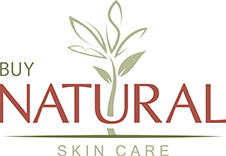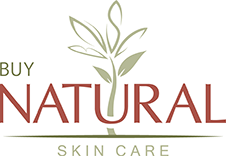What is Hyperpigmentation?
I’m not going to lie, my hyperpigmentation is all consuming as my body is covered from head to toe with - as I call them, “polkadots”. Being in the Arizona sun for years, my skin is hyperpigmented. Being an esthetician, I’ve become an expert in treating and preventing it. So, what is it and how do we get rid of it?
Hyperpigmentation is when your melanocytes go into overdrive as a protective mechanism. It’s actually a reaction caused by a variety of factors such as sun, heat, artificial light, acne, hormones and more. These internal and external factors turn your melanocyte cells on and they churn out more melanin to protect themselves.
The sun is the biggest culprit. Melanocytes are stimulated when exposed to the sun’s rays, and they produce more melanin to prevent the skin from burning. Artificial light from computers, phones, and other devices (even lightbulbs!) can cause the same overproduction of melanin – especially in darker skin tones.
Some internal triggers that kick these cells into action. Hormones, like an increase of estrogen, will cause brown patches to surface. This is known as melasma. According to the American Academy of Dermatology, 90% of people who get melasma are women (although, it is possible for men to get melasma as well due to factors such as genetic predisposition, illness, or certain medications). Melasma can flare on its own, but sun exposure can trigger or increase it. And let’s not forget about acne, cuts or bruises leaving behind something called post inflammatory hyperpigmentation (PIH).
So, how do we fight these little pesky spots?
Sunscreen is the first line of defense. Mineral sunscreens with zinc oxide or titanium dioxide are the best protection against the full spectrum of light. You can even use them indoors to protect you from HEV blue light from your devices.

Tyrosinase inhibitors are my go to. Tyrosinase is an enzyme that triggers your melanocyte cell and forces it to go into hyperdrive producing melanin. Hydroquinone, a fairly controversial ingredient has been used for decades to fight dark spots. Also a tyrosinase inhibitor, hydroquinone was considered the gold standard in lightening for years. It’s often been referred to as a bleaching agent, but it actually doesn’t bleach the skin. By inhibiting the pigment forming enzyme tyrosinase, it will help block new cells from darkening. There are multiple carcinogenic concerns related to hydroquinone and as well as side effects like ochronosis. This can actually lead to more hyperpigmentation instead of less which you’ll find more common in darker skin types. Eminence Organics uses a hydroquinone alternative in their Bright Skin collection that will give you the same lightening benefits without the clinical side effects associated with hydroquinone.
Retinoids like prescription tretinoin and over-the-counter retinols are also great for fading spots since they block the transport of melanin to epidermal cells and lower the activity of melanocytes. Again, Eminence uses a retinol alternative in their Firm Skin collection so consumers can use the products daily without experiencing the side effects usually associated with retinoids such as dry, flaky, itchy skin that is thinned, sun sensitive and damaged.
Many more ingredient options are available such as Vitamin C to lighten and brighten the skin, acids like pyruvic and glycolic to help cell turnover, bearberry and licorice to brighten and even skin tone. If you’re looking for more immediate results, in office treatments are available.
There’s no one-size fits all when it comes to treating your hyperpigmentation. Combating discoloration requires a commitment to both at-home products and in-office treatments. A good rule of thumb is to prevent rather than correct. So, take measures to prevent your skin from the triggers in the first place and you’ll keep a clear, even toned complexion.
Written by Jennifer Sposato



Leave a comment